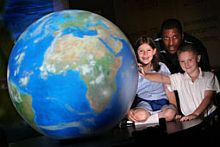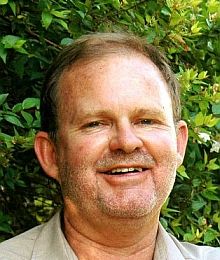In the wake of the World Cup
|
The World Cup has come and gone … leaving both a physical and spiritual legacy in its wake for South Africans.
We have been touched by it all. We are proud of our achievements as the host nation, having made small change out of afro-pessimism and winning friends from all nations. How appropriate then is not the ‘One Goal: Education for All’ campaign, which is still running!
Of all South Africa’s challenges and solutions, where we go from here with our education system is what will make or break us. Education is a long-term answer to poverty, job creation, economic growth, population health and environmental degradation.
We at SAEON are therefore committed to playing a positive role in support of the national education system. This we do through teacher and learner support, school monitoring projects, science awareness campaigns and research student support. No less than six articles in this month’s newsletter report on SAEON’s education activities.
Our programmes succeed in bringing global perspectives to local schools, from learning about global climate change to seeing the South African environment in perspective on the “Magic Planet”. In addition, we succeed in bringing international students to South Africa and conversely, to launch South African students for global learning experiences. It is indeed one of the advantages of education that it breaks down barriers in many ways.
For example, SAEON’s programmes are breaking down the unfortunate barrier between rural communities and science. Through hands-on involvement in environmental monitoring programmes, learners can have a real “Feel it, it is here”, interaction with science.
The ultimate achievement of SAEON’s school education programmes will be measured by the number of school-leavers opting for tertiary science courses after their participation in a SAEON programme.
Although we cannot measure the wider influence of the education outreach programmes in respect of rural communities, it can be assumed that SAEON learners will take their newly acquired scientific knowledge and life-orientation back into their households and communities, and that this will continue to open up more opportunities for their communities in search of sustainability.




